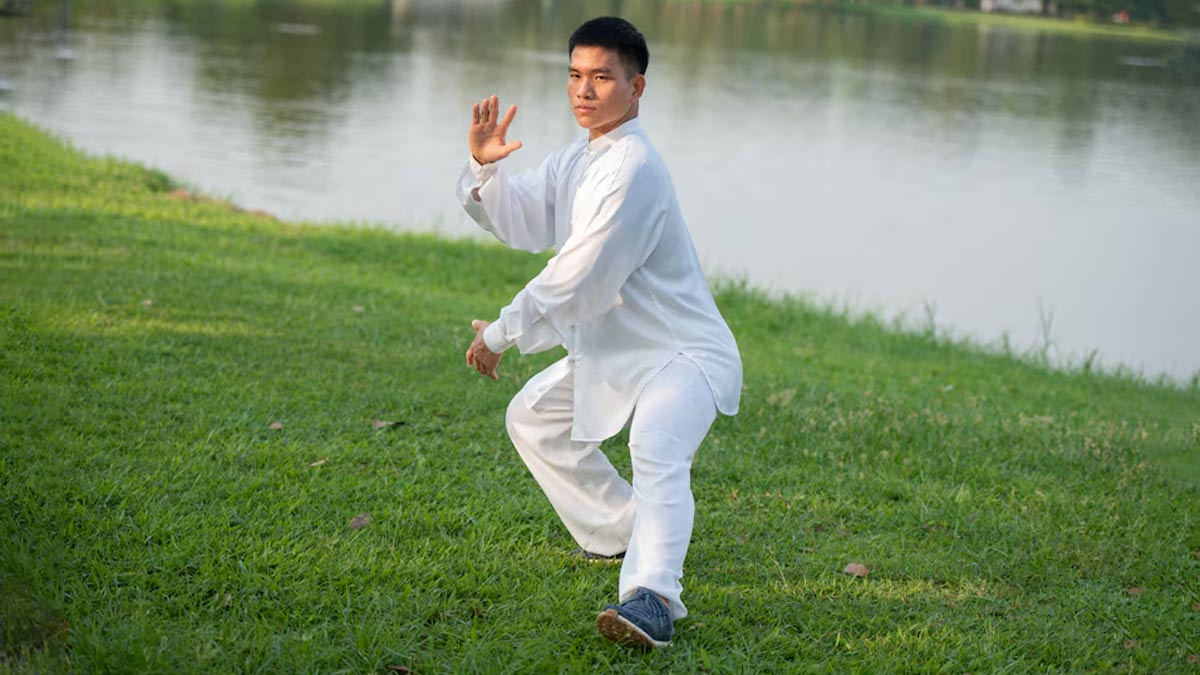
Imagine finding relief from the challenges of cancer treatment through gentle movements and mindfulness practices that you can do at home. That's exactly what a recent study explored, focusing on how yoga, Tai Chi, and Qigong—often grouped as Mind-Body Therapies (MBTs)—can impact the quality of life, fatigue levels, and physical abilities of cancer patients.
These MBTs specifically helped to tackle fatigue, which is a common symptom of cancer treatments like chemotherapy. The study was conducted by researchers from Loughborough University and published in the journal ‘Complementary Therapies in Clinical Practice.’ The study looked at patients with three of the most common cancers worldwide: breast, lung, and colorectal cancer.
Mind Body Therapies For Cancer Patients
When facing the challenges of cancer, finding comfort and relief can make a world of difference. That's why researchers have been exploring how practices like Tibetan Yoga, Hatha Yoga, Qigong, and Tai Chi can support patients on their journey.
In total, the recent study analysed nine different research papers involving breast cancer, lung cancer, and colorectal cancer patients. The study looked at different MBTs, and they found:

Tibetan Yoga
When patients with Breast Cancer were taught Tibetan Yoga by trained instructors, they exhibited improved sleep quality and overall comfort. The practice of Tibetan Yoga involves mindfulness, guided meditation, special breathing techniques, and gentle movements. The study recommended four in-person sessions for maximum benefit.
Hatha Yoga
The researchers found that a 10-week program led by instructors, which focused on meditation and relaxation techniques improved the quality of life and symptoms of those dealing with breast cancer.
Tai Chi
In the study, Lung Cancer patients were made to practise Tai Chi or low-impact exercises every other day during chemotherapy. The results showed that Tai Chi reduced cancer-related fatigue effectively.
Also Read: Expert Shares About Parkinson's Disease And How Tai Chi Can Help Slow Symptoms

Qigong
Both sporting and non-sporting interventions designed by Qigong professionals involved relaxation, meditation, and gentle movements. The exercises ranged from sitting or standing, relaxation, and detailed meditation, finger and palm exercises, shoulder exercises, hand lifting, and hair combing. Participants were encouraged to practice daily.
The study found that both types of Qigong showed benefits in improving the quality of life of breast cancer patients compared to standard care. Additionally, Qigong had similar psychological benefits to strength training but didn't impact exercise capacity as much.
Studying another form of Qigong called Baduanjin Qigong in colorectal cancer showed benefits against fatigue and related symptoms. In the research, participants learned through videos and practised at home, experiencing reduced cancer-related fatigue.
Yoga
During the study, patients with Breast Cancer attended training sessions and were encouraged to practice at home regularly. Practices included breathing exercises, meditation, and relaxation techniques. The results showed that yoga helped improve the quality of life during chemotherapy.
Those dealing with Colorectal Cancer received in-person sessions and practised at home. The programme focused on awareness, meditation, movement, and relaxation, all while seated during chemotherapy.
Also Read: Are You Troubled With Lower Back Pain? Try Tai Chi Moves To Get Relief
Fatigue is a common challenge during chemotherapy, and this latest study showed how these practices, combining exercise and mindfulness, offered relief. Surprisingly, while not statistically significant, yoga seemed to have a greater impact on improving the quality of life in breast and lung cancer patients compared to Tai Chi and Qigong. This could be due to the popularity of yoga in Western cultures and its alignment with physical aspects rather than spiritual ones. In essence, incorporating yoga, Tai Chi, or Qigong into your routine could offer a multifaceted approach to managing the challenges of cancer treatment, providing physical and emotional support along the way.
Also watch this video
How we keep this article up to date:
We work with experts and keep a close eye on the latest in health and wellness. Whenever there is a new research or helpful information, we update our articles with accurate and useful advice.
Current Version